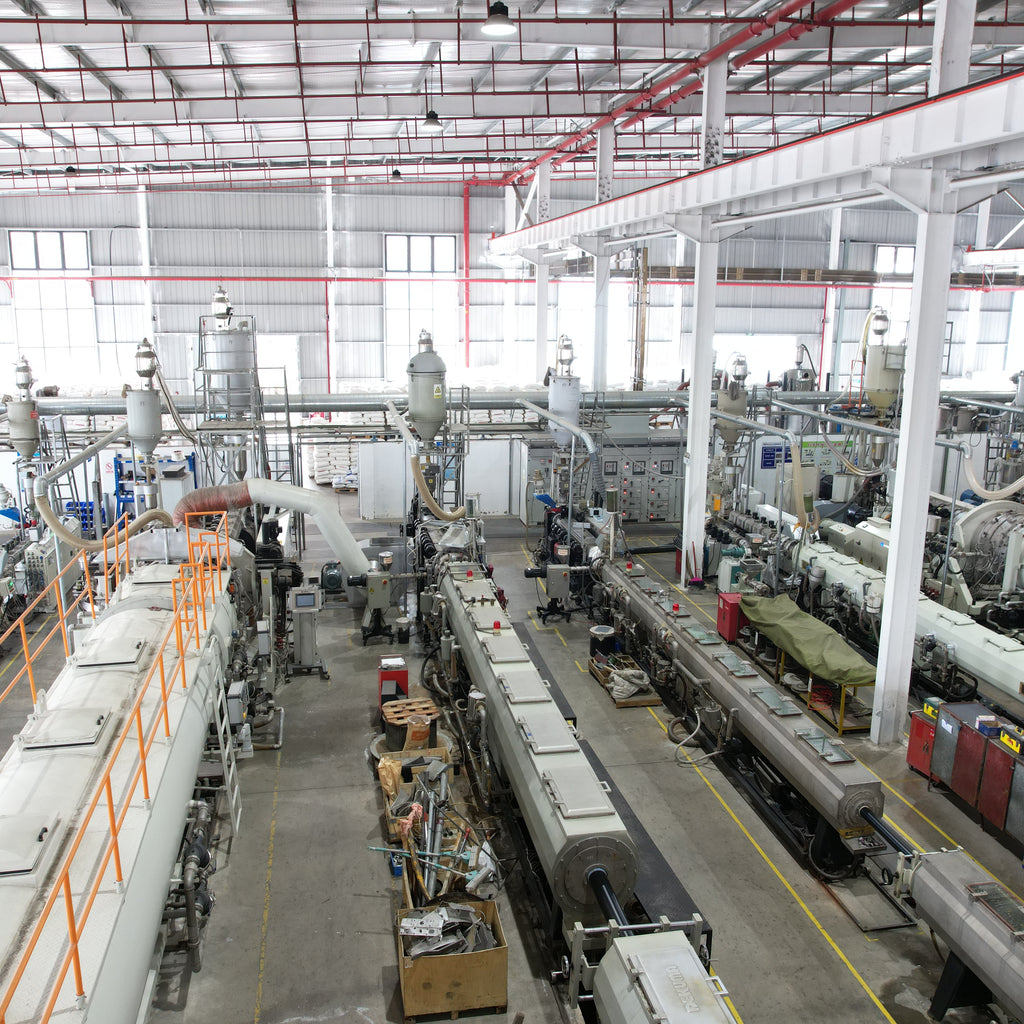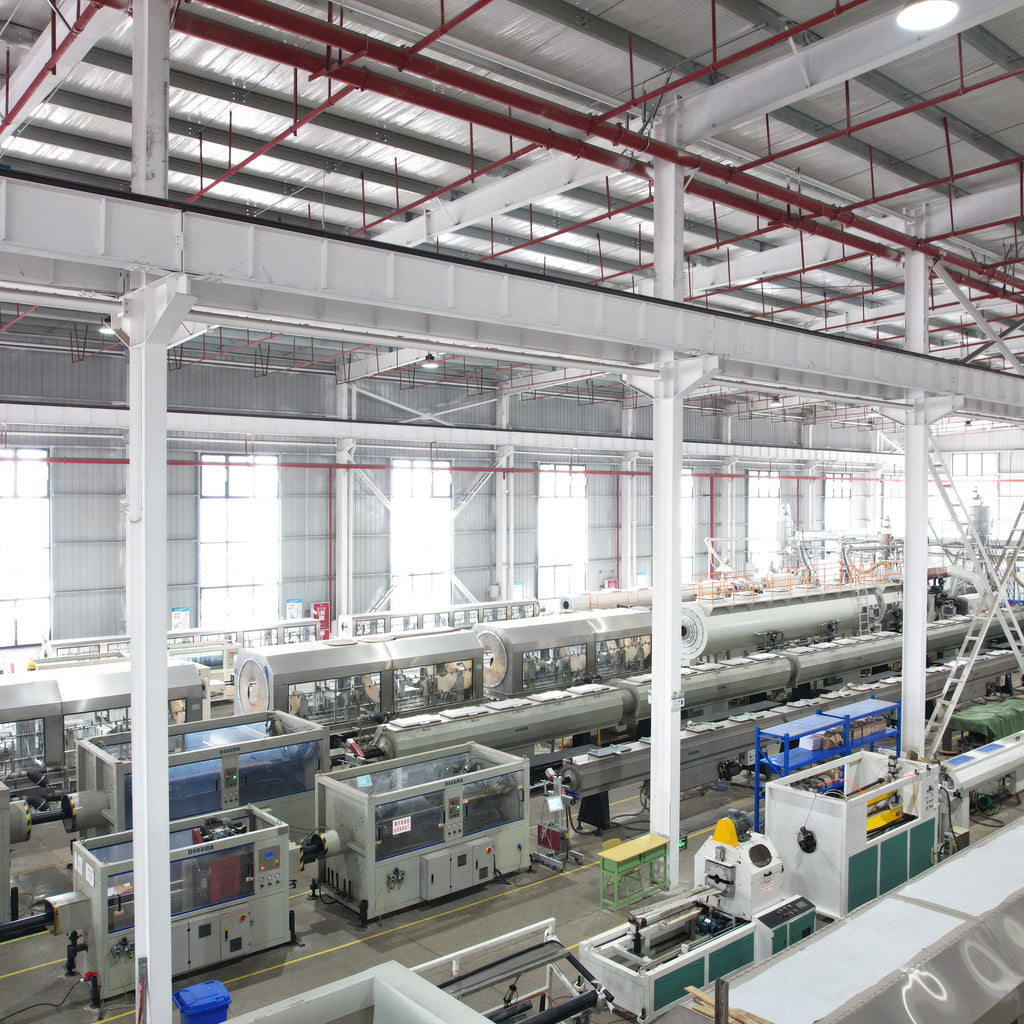UHMWPE Rollers: Technical Advantages, Manufacturing Standards, and Industrial Applications
UHMWPE Rollers: Technical Advantages, Manufacturing Standards, and Industrial Applications
1. Introduction
Ultra-High Molecular Weight Polyethylene (UHMWPE) rollers have redefined material handling efficiency, leveraging a molecular weight exceeding 3 million g/mol to outperform traditional steel, ceramic, and even HDPE alternatives. Compliant with ISO 9001, CEMA, and ASTM standards , these rollers integrate advanced material science with precision engineering to deliver durability and sustainability across industries. This article dissects their material properties, manufacturing innovations, and real-world applications, supported by comparative performance data.
2. Material Science: UHMWPE vs. Alternatives
2.1 Core Performance Metrics
UHMWPE’s unique molecular structure grants it superior characteristics, with clear advantages over HDPE and steel :
|
Property
|
UHMWPE
|
HDPE
|
Carbon Steel
|
|
Density (g/cm³)
|
0.94
|
0.945
|
7.85
|
|
Abrasion Resistance
|
5–8x steel
|
2x steel
|
Baseline
|
|
Impact Strength (kJ/m²)
|
Unbreakable at -196°C
|
Brittle < 0°C
|
Ductile loss < -20°C
|
|
Heat Deformation Temp (°C)
|
85
|
71
|
425
|
|
Water Absorption (%)
|
<0.01
|
<0.01
|
N/A (corrodes)
|
|
Coefficient of Friction
|
0.07–0.11
|
0.15–0.20
|
0.15–0.25
|
2.2 Key Advantage Deep Dive
2.2.1 Abrasion & Corrosion Resistance
The 10–15 mm thick UHMWPE shell delivers 5–7x better wear resistance than steel, earning it the nickname "wear-resistant king" . In coal-fired power plants, UHMWPE rollers maintained 90% of their diameter after 60,000 hours, while steel rollers wore down by 50% . Its chemical inertness withstands pH 1–14 environments, making it ideal for fertilizer plants handling 30% H₂SO₄ .
2.2.2 Energy Efficiency & Noise Reduction
With a friction coefficient comparable to ice, UHMWPE reduces conveyor energy consumption by 25% . In 实测 tests, a 100-meter conveyor system using UHMWPE rollers cut electricity use from 15 kW to 11.25 kW. Their viscoelasticity lowers noise by 15–20 dB vs. steel, meeting OSHA 85 dB limits .
2.2.3 Lightweight & Impact Safety
At 1/8 the weight of steel and 50% lighter than HDPE rollers , UHMWPE simplifies installation—reducing labor time by 40%. Its non-sparking impact resistance (even under 硬物 collision) makes it essential for explosive environments like coal mines.
3. Precision Manufacturing & Design
3.1 Structural Innovations
- Sealing Systems: Triple labyrinth seals (nylon PA6 material ) + interference-fit UHMWPE tubes create a waterproof/dustproof barrier, extending bearing life to 60,000 hours. The outer stone guard prevents jamming from spilled material .
- Load Optimization: Steel-core inserts and 7–20 mm wall thicknesses enable medium-to-heavy duty use (up to 500 kg/roller). For bulk handling, diameters range from 64 mm to 159 mm, matching bandwidths 500–1400 mm .
- Precision Machining: CNC-cut shafts (concentricity ≤0.05 mm ) and T.I.R. ≤0.05 mm ensure stable rotation at 5 m/s, minimizing belt misalignment.
3.2 Manufacturing Standards
Production adheres to strict protocols:
- Shafts: Cold-drawn Q235/45 carbon steel, machined by digital auto-equipment .
- Bearings: SKF/NSK deep-groove precision bearings with C3 clearance .
- Assembly: Automatic welding for bearing houses, ensuring concentricity .
4. Industrial Applications & Case Studies
4.1 Mining & Bulk Handling
In Australian iron ore mines, UHMWPE rollers reduced downtime by 70% vs. steel, as their 15 mm thick shells resisted ore abrasion . At Chinese coal mines, they eliminated corrosion-related failures, cutting maintenance costs by $80,000/year .
4.2 Chemical & Fertilizer Plants
Fertilizer facilities using UHMWPE rollers saw 95% less material buildup , thanks to the non-stick surface. Unlike stainless steel, they avoid chloride pitting in 30% H₂SO₄ environments .
4.3 Ports & Terminals
Singaporean ports deploy UHMWPE rollers for salt-laden containers—their UV-resistant carbon black additive prevents degradation, outperforming ceramic rollers at 40% lower cost .
4.4 Food & Pharmaceuticals
FDA-compliant UHMWPE rollers (21 CFR § 177.1520) are used in dairy plants, where their easy-to-clean surface reduces bacterial growth . In cleanrooms, their low noise meets ISO 14644-1 Class 7 standards .
5. Lifecycle & Cost Benefits
5.1 Total Cost of Ownership
|
Factor
|
UHMWPE Roller
|
Steel Roller
|
|
Service Life (Years)
|
5–8
|
1–2
|
|
Installation Cost
|
50% of steel
|
Baseline
|
|
Energy Consumption
|
75% of steel
|
Baseline
|
|
Annual Maintenance Cost
|
\(200–\)300
|
\(800–\)1,200
|
5.2 Sustainability Impact
The lightweight design reduces transportation emissions by 67%, while the 5–8 year lifespan cuts plastic waste by 75% vs. HDPE alternatives. Recycled UHMWPE grades further align with circular economy goals .
6. Conclusion
UHMWPE rollers represent a technical breakthrough in material handling, combining abrasion resistance, energy efficiency, and cost-effectiveness. Their compliance with global standards and adaptability to extreme environments—from arctic mines to pharmaceutical cleanrooms—make them indispensable. As manufacturers integrate carbon-fiber reinforcements and smart sensor technology, UHMWPE rollers will continue to drive efficiency in the industrial sector.
Sample Block Quote
Nam tempus turpis at metus scelerisque placerat nulla deumantos sollicitudin delos felis. Pellentesque diam dolor an elementum et lobortis at mollis ut risus. Curabitur semper sagittis mino de condimentum.
Sample Paragraph Text
Lorem ipsum dolor sit amet, consectetur adipiscing elit. Morbi ut blandit risus. Donec mollis nec tellus et rutrum. Orci varius natoque de penatibus et magnis dis parturient montes, nascetur ridiculus mus. Ut consequat quam a purus faucibus scelerisque. Mauris ac dui ante. Pellentesque congue porttitor tempus. Donec sodales dapibus urna sed dictum.



